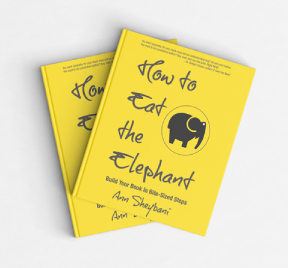Writing
Us vs.Them
June 1, 2020
When I was young, I fancied myself a global citizen. A Margaret Mead type, who gravitated towards exotic cultures. Impressed with my “intimate” knowledge of obscure peoples, of my ability to hang out in their communities like the team mascot, I turned my nose up at my suburban upbringing. The very people I spent the bulk of my time with— my family, my schoolmates, my neighbors— were, to my grandiose way of thinking, boring and provincial.
After moving to Iran with my husband, however, I discovered that I wasn’t nearly as enamored of foreign cultures as I’d thought I was. All the little differences in mindset and behaviors I’d celebrated when a dabbler served to irritate once I found myself fully immersed. I couldn’t go home when I’d had enough. I was there for good, not on a lark about.
Daily life became a perpetual wait, a constant burden, a continuous feeling of being out of sorts.
Without reprieve, I smacked up against the challenges of being an outsider: the loneliness, the culture shock, the longing for home. I wearied of the perpetual adjustment. I misinterpreted everything—language and deed. The normal rules I knew no longer applied. I could take nothing for granted.
Life there was even further complicated by the fact that I was married to an Iranian. It quickly became clear that my husband and I wanted very different things. What made him happy—the very essence of his Iranian-ness— often had the polar opposite effect on me. Visits to his family in the village, for instance, became a tremendous source of strain.
“What are you talking about?” he would say when I expressed my overwhelming desire to escape the presence of his innumerable, cloying relatives. “These people love you. Everyone wants to talk to you. Everyone wants to be your friend. What are you complaining about? Why can’t you just relax and go with the flow?” He wasn’t so much annoyed as confused.
He was in his element there, unlike me. Thousands of people coming and going at odd hours, lamb three times a day, continually flowing tea. He wasn’t bothered by the lack of privacy, particularly at night, when every room in the place was crammed full of sleeping forms snoring like winos. Or by the squadrons of mosquitoes that, after an industrious night of blood sucking, punched the clock at sunrise only to be replaced by the day shift’s cloud of black flies. Or by the inability to understand more than a handful of basic words.
I felt guilty for being frazzled and out of place. I couldn’t cope with so many people. I felt like I was drowning. I wanted nothing more than the life I’d fled in Vernon, Connecticut, a formally ho-hum place that now seemed to me a relative Nirvana.
Things started looking up for me when I found the Shirazi Tea Party Society—a group of Western women like me married to Iranians. Even before I walked into that first party, I could sense the radiant vitality emanating from the room. People having fun, an openness to pleasure, a sense of belonging and of all things being right with the world. So different from the feel of large Iranian gatherings, where heaviness seemed to loom above like a hangman’s noose.
Where every get-together seemed like an excuse to weep uncontrollably, pound one’s chest to the recitation of a Koran story, then have lots to eat.
At the heart of the salon, twenty or so Western women conducted conversations, dessert plates in hand. The hostess put Kenny Rogers on the stereo. After a few bars, my eyes welled up. I had never really liked Kenny Rogers before, but at that point I wanted to own every album he’d ever made.
I could have listened to “The Gambler” for days and days because that song was the first thing in a very long time that had seemed remotely real, remotely “home.”
At those gatherings someone would tell the story of a predatory doctor who raped his fertility patients, and a villager who got sick and spread disease because he’d banged some donkeys.
Then someone might mention a neighbor lady who’d come home from vacation only to discover a twenty-year-old second wife in her bed. It quickly became clear that all Iranian women took it up the bum. That married women slept around because they no longer had their virginity to prove.
Each time we got together as a group, the tales of Iranian debauchery grew worse and worse. I became, much to my shame, highly judgmental of an entire nation of innocent people.
The mindset of us versus them creeps up so slowly, so quietly, it’s got you in its grasp before you’re even aware.
The truth was, none of us, no matter how long she’d been there, really understood what went on in that place. Each knew just enough about Iranian life to be apprehensive. Maybe that was why every story was so ugly and had such a tragic ending. We couldn’t help but interpret situations unfolding in kaleidoscopic bits and pieces around us with a Western mindset; we couldn’t help misinterpreting, or being overly fearful, or mean, because we were isolated folk who defied assimilation. In a world where one could barely communicate—where a street sign could take upwards of fifteen minutes to read, and an intelligent conversation with a kid’s third-grade teacher might take weeks of preparation—one could only feel bitter and disoriented.
For a long time I tried to understand this ugly mindset. I searched for the reason I’d lost my openness, curiosity, and compassion for other people. My joy for experiencing the different.
How does someone open to cultural experiences become intolerant? Can one live within a vastly different culture and remain the person he/she was at the outset?
Sometimes I look at snapshots from that time in Iran. Huddled together, smiling for the camera, we expats looked like survivors on a leaky boat. A whole bunch of faces that are both hopeful and dazed. We had so little in common other than we’d fallen in love with Iranian men, married them, and landed in Iran. We’d walked away from families, friends, and jobs, only to find ourselves in a place with negligible opportunity.
While I see an extended family—a source of support, of companionship, of understanding, of love—I also see a group of women who clung to their own kind, welded together by need. Who didn’t necessarily like each other. Who became, in that group, people they never dreamed of being, Imperial Colonialists among the wogs.
Is such a change inevitable? We all like to believe that, regardless of circumstances, we are immutable. But I know that, when lifted out of our natural environment, when isolated from everything familiar, we are not who we would like to believe we are. That’s what culture shock does.
I also know that those expatriates who kept their distance from the unhappy herd, seemed to adjust to life so much better than I. They had Iranian friends whom they adored, hobbies and interests to keep them engaged. They seemed to have let go of all expectations, all desire to control, and drifted along.
I often wonder if, given the experience in Iran to live all over again, I could have turned out any differently. If I could have maintained my wholeness, my sense of principle, and been the kind of person I’d always held myself out to be. The truth is, I just don’t know.
When the heat is on, who are you capable of becoming?



[…] the variety of American perspectives. Just how separate the conversations have become. The us vs. them […]